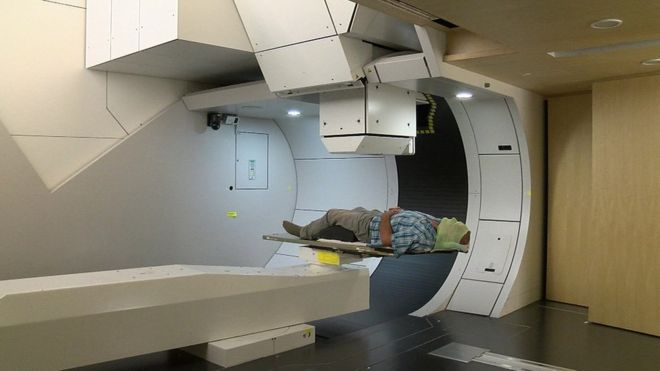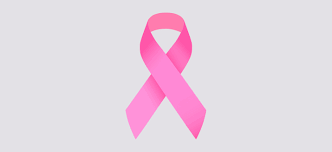Feature -High costs of diagnosis and treatment worsening cancer burden
Share

By Eugenie Muchetu
Harare November 14, 2023 -As Zimbabwe is facing an increasing cancer burden, recording approximately 8 500 new cases annually, 80 percent of these are detected late due to a number of reasons including the high costs of diagnosis and treatment.
In its latest report, the Zimbabwe National Cancer Registry noted that in 2018 the country recorded 7 841 new cancer cases and 2 743 cancer deaths, and these are increasing.
“The situation is very worrying in that 80 percent of all the cancer cases are being diagnosed at stage three and four, so there is late-stage diagnosis. I think in Zimbabwe patients are reporting very late at health institutions this might be as a result of a number of reasons maybe they try to visit traditional healers and so forth before they come to hospital then also the cost at the hospital is also a hindrance,” said Cancer Association of Zimbabwe (CAZ) information research and evaluation officer Lovemore Makurirofa.
Cancer can be successfully treated when caught at the early stages and reporting late for treatment makes it harder to treat.
Detection of cancer is also further compounded by the high cost of diagnosis, as scans, mammograms, and biopsies are expensive and most patients fail to have these done on time because of lack of financial resources.
“It’s not only the cost of treatment which is high but diagnosis also, because you need to be able to afford the scans, you need to afford the biopsies and so forth. A lot of people cannot afford these scans and biopsies so it’s also an area that requires consideration.
“One can pay for a scan then they go back and try and look for some financial resources then they come again maybe after two or three months they want to pay for a biopsy. That means that cancer will be diagnosed very late and this is the reason why 80 percent of all the cancers in Zimbabwe are diagnosed very late because there is less affordability,” posited Makurirofa.
Attesting to the high cost of treatment, a breast cancer survivor Agnes Chimuti, who had the cancer detected at one of the CAZ’s screening drives and had her breast removed, said when she eventually had a biopsy done, it was discovered that her cancer was now at stage three and had to get radiotherapy services from a private health institution costing more than US$7 000.
Consequently, the majority of cancer patients cannot afford the diagnosis services, as only less than 10 percent of the population in Zimbabwe is covered by medical aid.
Myths and misconceptions regarding cancer and its treatment have also been cited as some of the reasons why patients present late at health institutions.
There are three treatment options available in Zimbabwe, the primary modalities being chemotherapy, radiotherapy and surgery.
“Unfortunately, there are myths and misconceptions with regards to this treatment. Some people are not keen to go under surgery, they think that if they go under surgery the cancer is likely to spread, some are afraid of radiotherapy, some are afraid of chemotherapy because of its side effects. So there is still need for a lot of awareness for the population of Zimbabwe to understand the importance of these treatment modalities,” said Makurirofa.
Chemotherapy is available in the private hospitals where profit margins are likely to be high. It is also charged in United States dollars and a lot of patients cannot afford it.
“Even those on medical aid again they are supposed to pay something so you find out that as long as they are not available in public hospitals, they are likely to be unavailable for the patients because of the high cost of the chemotherapy drugs.”
Currently radiotherapy is not available at any of the public hospitals and is only available in the private sector, a situation that requires urgent attention.
“If radiotherapy is available in the public institutions, it is a bit affordable as compared to the private health institutions. Unfortunately, the current situation is that radiotherapy services at public health institutions are not available for the patients because the machines are not working. So it’s something that needs to be treated as a matter of urgency.”
The top three common cancers in the country are cervical cancer, breast cancer, which is also very common among women, and prostate cancer among men.
Among the cancer incidences the majority are women, that is 57.9 percent and also among the deaths 54.5 are women.
Cervical cancer contributed 20 percent to the total cancer incidences, breast cancer 8 percent and prostate cancer 11 percent.
In terms total mortality, in 2018 cervical cancer contributed 13 percent, prostrate 10 percent while breast cancer contributed 7 percent.
“Of course there are other cancers like colon and rectal cancers are also increasing. We also have non-hodgkin lymphoma and other cancers but these top three are the most common in Zimbabwe in terms of the national cancer burden and the cases are increasing every year,” said Makurirofa.
According to the Zimbabwe National Cancer Registry, cervical cancer contributes around 38 percent to the total cancer burden among women, which is very significant.
It is followed by breast cancer while prostate cancer is the number one among men, contributing 11 percent to the total cancer cases and also 10 percent to the total cancer deaths in Zimbabwe, which is very significant as well.
Importantly, cancer is preventable and more than 50, percent of the cancers can be prevented.
“For example cervical cancer is cancer number one yet it is the most preventable of all cancers, because if women are screened and treated of the abnormal cells before they turn cancerous, they can be prevented from having cervical cancer,” Makurirofa explained.
“So cancers can be prevented. There are issues to do with lifestyle, there are issues to do with tobacco use, there are issues to do with reducing alcohol intake, and substance abuse. There are issues to do with having exercises, managing our weight. There are issues to do with avoiding a sedentary lifestyle, avoiding obesity etc. Those are some of the lifestyle changes that we need to implement before we develop cancer and it’s a culture we need to inculcate in our children so that they live healthy lifestyles. Then issues to do with diet, people should have a healthy diet as a way of preventing cancer,” says Makurirofa.
In efforts to lessen the country’s cancer burden and assist cancer patients, the CAZ offers a number of services that include raising awareness, early detection services, and it has a breast care clinic. It also offers psychosocial- support to patients.
New Ziana










